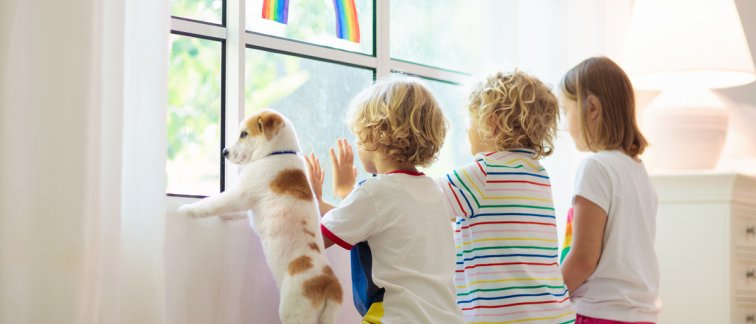Children experience little to no physical negative consequences from the corona pandemic, but the mental and psychological health of this group is at stake. How do they deal with, for example, the social limitations of a lockdown?
“We still know far too little about the consequences of the corona pandemic for children. But it is very important to identify potential risks and problems, so that we can help young people who are in trouble due to the lockdown and other COVID-19 related measures,” says APH researcher Arne Popma (professor of Child and Adolescent Psychiatry at Amsterdam UMC).
A grant of €500,000 received by ZonMw, allows the team to carefully chart the mental health of children and adolescents in the Netherlands. Four large academic child and adolescent psychiatry centers (Amsterdam, Leiden, Nijmegen and Groningen), twenty youth care centers, two large (longitudinal) population studies (Netherlands Twin Register (NTR) and KLIK PROM Portal about psychosocial functioning and symptoms of children who are treated in a hospital) and young people themselves, will jointly investigate the short and long-term effects of the corona pandemic.
APH researcher Tinca Polderman (senior researcher at Vrije Universiteit Amsterdam) leads the DREAMS cohort project from the Amsterdam UMC: “The recent launch of the DREAMS cohort, in which data from four child psychiatric centers will be brought together, and the collaboration with the youth care centers, ensures that we can target children from all over the Netherlands."
“This is especially important research for children and adolescents with pre-existing social, psychological and/or psychiatric problems. We are concerned about the negative effects, but we also observe signals that mental problems (e.g., fear, anger) sometimes seem to diminish in this group of children. With this study we can collect data across the different populations of children and we will work out both the questions and the results together with young people. If there is one group that can think along about solutions, it is the young people themselves. After all, they are still not heard often enough".
One of the strengths of this project is the collaborations between child and adolescent psychiatry, youth care and large, longitudinal population studies. APH researcher Meike Bartels (professor in Genetics and Wellbeing at Vrije Universiteit Amsterdam), emphasizes that the Netherlands Twin Register (NTR) has been tracking the development of children in the Netherlands for over 35 years. "These data can provide a good picture of possible changes in mental health and wellbeing of Dutch children before, during, and after the corona crisis."
The study will start in mid-October 2020 and the first results are expected in the course of next year.

